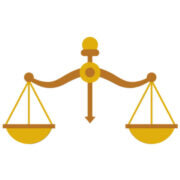Best Wrongful Death Lawyers in Fort Lauderdale
Share your needs with us, get contacted by law firms.
Free. Takes 2 min.
List of the best lawyers in Fort Lauderdale, United States
About Wrongful Death Law in Fort Lauderdale, United States
Wrongful death law in Fort Lauderdale, Florida is designed to protect the rights of individuals who have lost a loved one due to negligence, default, or wrongful act of another person. This includes cases resulting from auto accidents, medical malpractice, workplace mishaps, and various other circumstances. This type of civil action seeks compensation for damages such as medical and funeral expenses, loss of companionship and protection, and mental pain and suffering.
Why You May Need a Lawyer
Engaging a lawyer for wrongful death lawsuits in Fort Lauderdale is essential because these are complex cases. Lawyers can help establish negligence, designate an appropriate personal representative, and ensure that claims meet the strict statutes of limitations. Legal advice is also crucial in calculating and negotiating fair compensation for economic and non-economic damages. In wrongful death cases, the burden of proof lies with the plaintiff, making experienced legal representation vital.
Local Laws Overview
Under Florida's Wrongful Death Act, any compensation received is distributed amongst the decedent's survivors in accordance with their level of dependency on the deceased. The law also stipulates a statute of limitations of two years from the date of death during which a wrongful death lawsuit may be filed. Not everyone can file a wrongful death claim, however. The personal representative of the deceased's estate must file the claim on behalf of the eligible survivors, which typically include the spouse, children, and sometimes parents and other dependent relatives.
Frequently Asked Questions
1. What qualifies as a wrongful death?
A wrongful death is one that occurs as the result of negligence, default, breach of contract, or wrongful act by another individual or entity.
2. How long do I have to file a wrongful death lawsuit?
Under Florida's statute of limitations, a lawsuit for wrongful death must be filed within two years of the date of death.
3. Who can file for wrongful death?
A wrongful death claim must be filed by the personal representative of the decedent's estate on behalf of the eligible survivors.
4. What type of damages can be recovered?
Compensatory damages in wrongful death cases can include medical and funeral expenses, loss of companionship and protection, and mental pain and suffering among other expenses.
5. How can a lawyer be of help?
An experienced wrongful death lawyer can handle legal procedures, establish liability, calculate fair compensation and negotiate settlements on your behalf.
Additional Resources
For additional information, consult the Florida Statutes on Wrongful Death (Title XLV, chapters 768.16-768.26) or refer to resources provided by the Florida Bar Association and the Broward County Bar Association. Support groups like Bereaved Survivors of Homicide also offer assistance.
Next Steps
If you believe you have a wrongful death case, it's imperative to consult with experienced legal counsel immediately. Document all relevant information regarding the case and maintain records of any associated expenses. Keep in mind that wrongful death cases should be initiated promptly due to the limited timeframe stipulated by the statute of limitations.
Lawzana helps you find the best lawyers and law firms in Fort Lauderdale through a curated and pre-screened list of qualified legal professionals. Our platform offers rankings and detailed profiles of attorneys and law firms, allowing you to compare based on practice areas, including Wrongful Death, experience, and client feedback.
Each profile includes a description of the firm's areas of practice, client reviews, team members and partners, year of establishment, spoken languages, office locations, contact information, social media presence, and any published articles or resources. Most firms on our platform speak English and are experienced in both local and international legal matters.
Get a quote from top-rated law firms in Fort Lauderdale, United States — quickly, securely, and without unnecessary hassle.
Disclaimer:
The information provided on this page is for general informational purposes only and does not constitute legal advice. While we strive to ensure the accuracy and relevance of the content, legal information may change over time, and interpretations of the law can vary. You should always consult with a qualified legal professional for advice specific to your situation.
We disclaim all liability for actions taken or not taken based on the content of this page. If you believe any information is incorrect or outdated, please contact us, and we will review and update it where appropriate.











